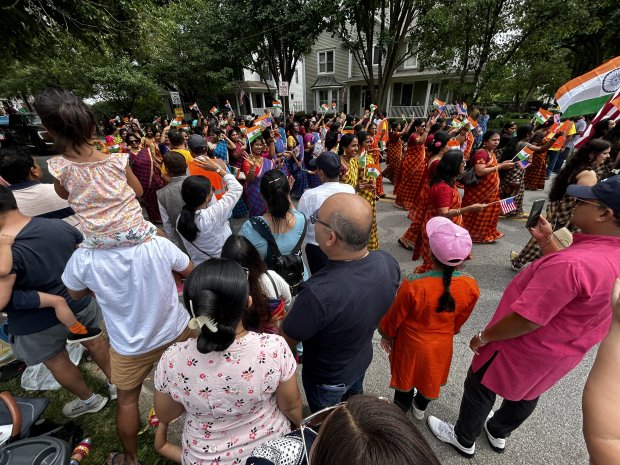Mayor Brandon Johnson’s administration reversed itself Friday, announcing migrants will no longer start being evicted this weekend from Chicago’s migrant shelter system. It’s the mayor’s latest about-face in his handling of a 60-day shelter limit policy that has seen months of delays and backlash.
During a Friday briefing with City Hall reporters, Johnson’s deputy chief-of-staff Cristina Pacione-Zayas confirmed the change ahead of Saturday’s deadline for the first group of migrants required to leave the shelters. The mayor had told reporters Wednesday the city would move ahead with limited evictions, amid outcry from a group of aldermen opposed to the policy.
The late change comes as residents of a Lower West Side shelter currently grapple with a measles outbreak. As of Thursday, 12 cases of the highly infectious disease have been reported in Chicago — the first such cases in five years — ten of which are from the migrant facility that is in the midst of a lockdown.
It is unclear how many migrants would have been affected were the Johnson administration to have proceeded. While his team previously estimated as many as 5,600 migrants could be removed under the shelter limit policy, he hinted Wednesday that scores would have been spared thanks to exemptions granted by the city.
Those required to leave were going to be directed back to the city’s landing zone if they wished to restart the process of waiting for a shelter bed. The mayor had indicated those affected would not make up “a substantial number,” given the exceptions made for those in the process of securing permanent housing or facing health circumstances.
The mayor in November initially unveiled the new requirement that migrants leave the shelters after 60 days as a way to push them to find permanent housing and relieve pressure on the expensive, overburdened shelter system. Since then, Johnson has delayed enacting the policy three times.
The previous pushbacks, each announced in January, came amid cold weather and aldermanic complaints just days before migrants faced removal. This Saturday was the next deadline, though it too was surrounded by mixed messaging from the Johnson administration.
While suggesting Wednesday that the deadline would stand, Johnson pinned the “unsustainability” of the city’s asylum seeker support on the absence of federal support while calling on Congress to punish Republican Texas Gov. Greg Abbott for his hand in sending migrant buses north to Chicago.
“The ultimate goal is to move people to resettlement or out-migration,” the mayor said Wednesday. “What this policy has essentially done, it has given us the opportunity to have real substantive conversations with migrants to help them move on.”
At the same time, Ald. Andre Vasquez, 40th, said the Johnson administration signaled to him they were still deliberating the policy’s implementation. That was despite mayoral spokesperson Ronnie Reese saying earlier this month, “The decision was made.”
The mayor faced a similar storm most recently when news of his decision to end the city’s use of the ShotSpotter gunfire detection technology broke before the deal was inked. As uncertainty mounted over whether the company would play ball with a final extension through the historically violent summer, Johnson evaded questions asked by reporters days before the contract’s end. Ultimately, an agreement was announced the day before.
Earlier this winter, the 60-day migrant shelter policy was delayed because of extreme weather conditions. Johnson’s administration previously estimated as many as 5,600 migrants could be removed under the shelter limit policy, including Chicago Public Schools students, sparking concern from advocates and progressive aldermen who say a shortage of work permits or rental assistance would send many of the asylum seekers to the streets.
But while Johnson maintains he will prove Chicago’s values as a welcoming city for immigrants, he has also been under sharp pressure from moderates and Black aldermen to rein in runaway costs that could be spent on longtime Chicagoans, too.
The pace of new arrivals has also slowed in recent months — a reprieve that many receive with wariness, given the threat of Abbott escalating the buses before the Democratic National Convention arrives in Chicago this summer. The population in the city shelters has declined from a late-December high of 14,900 to 11,200 Friday.
ayin@chicagotribune.com



